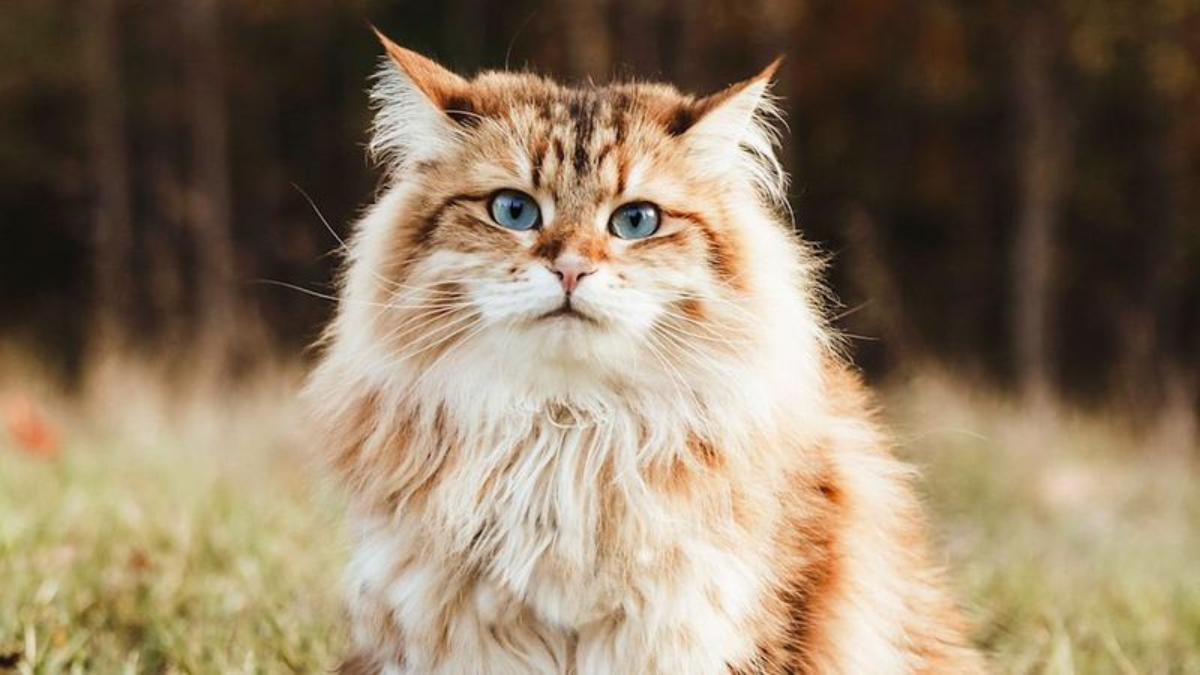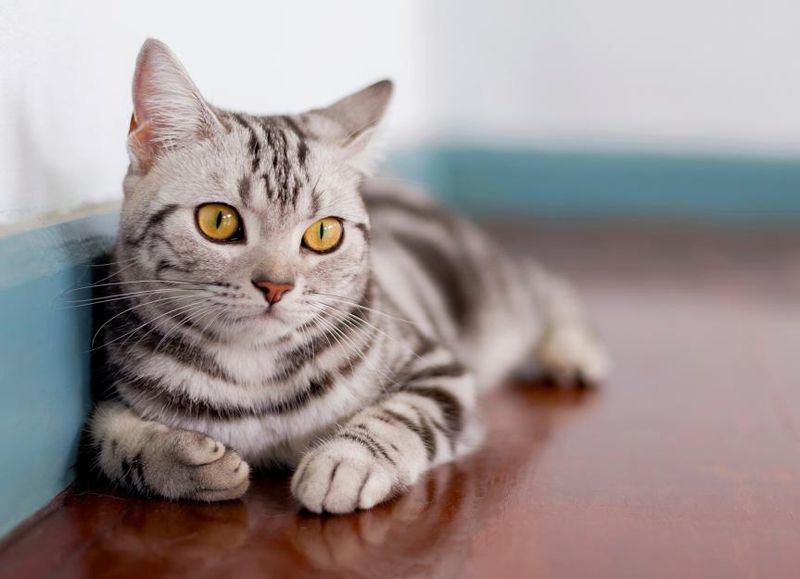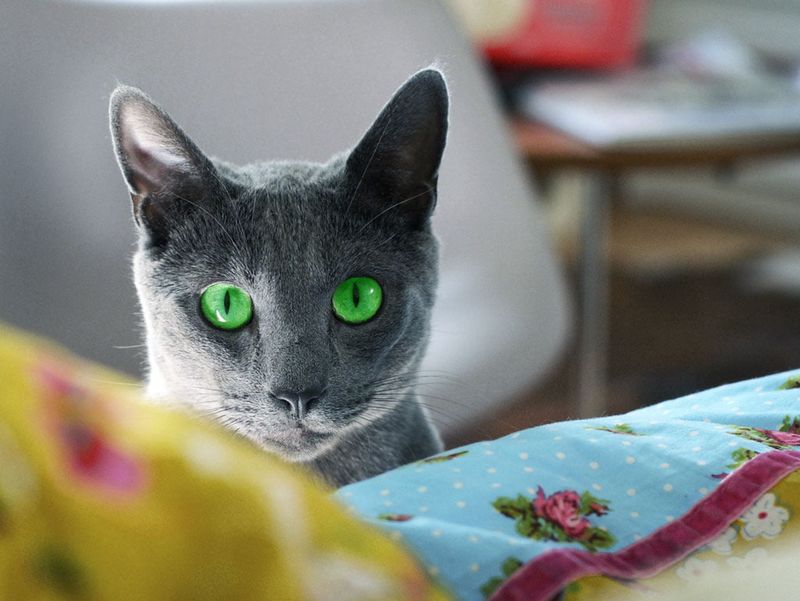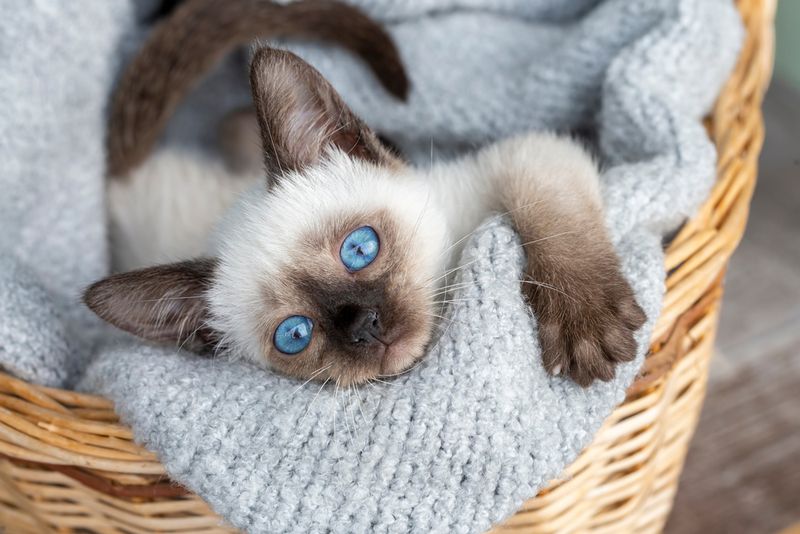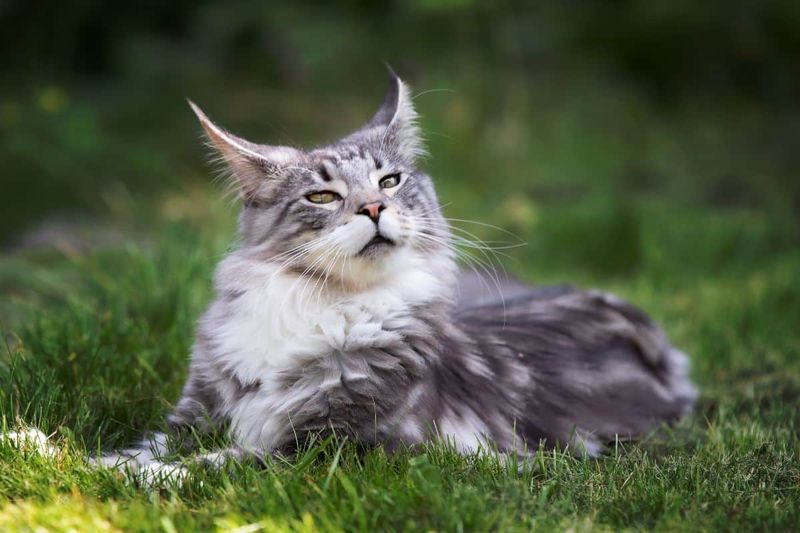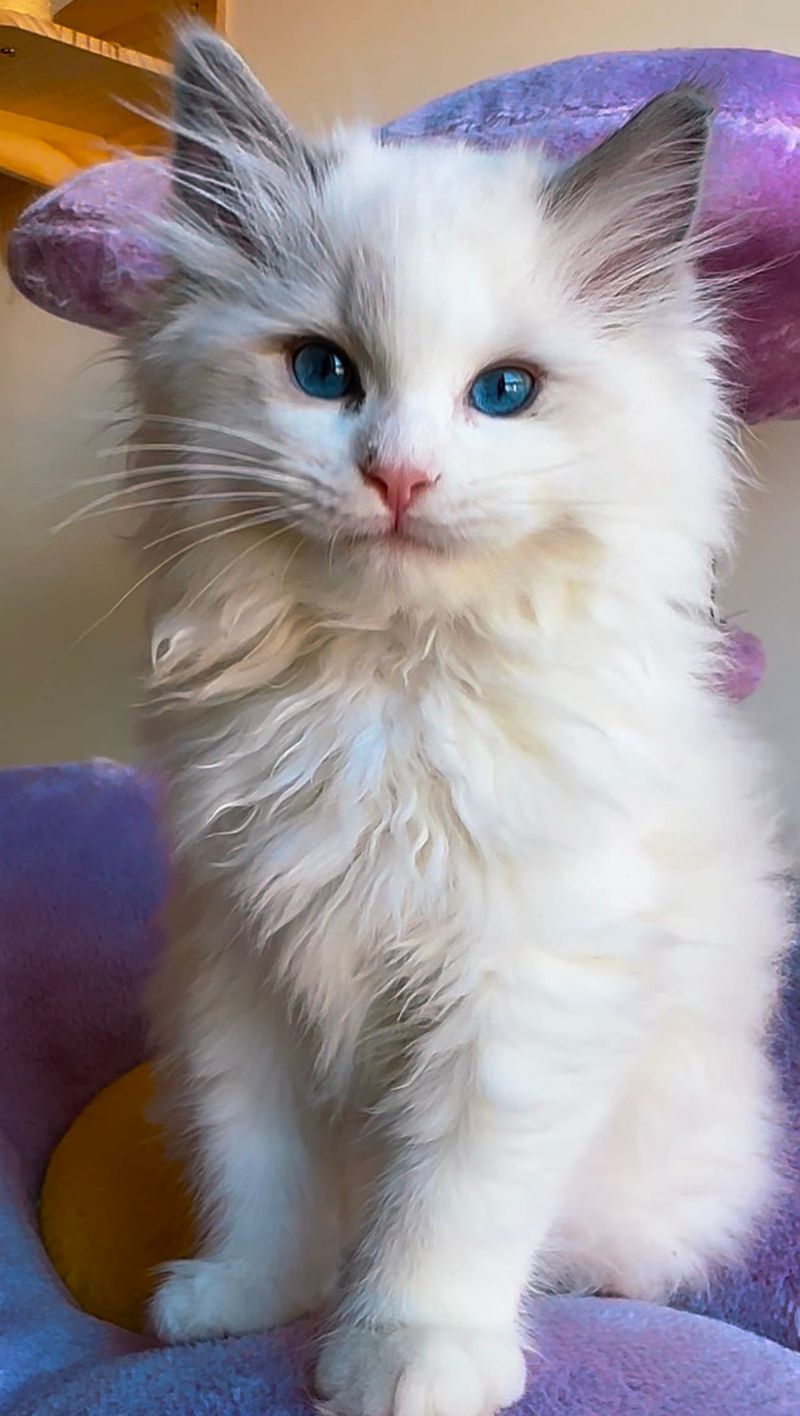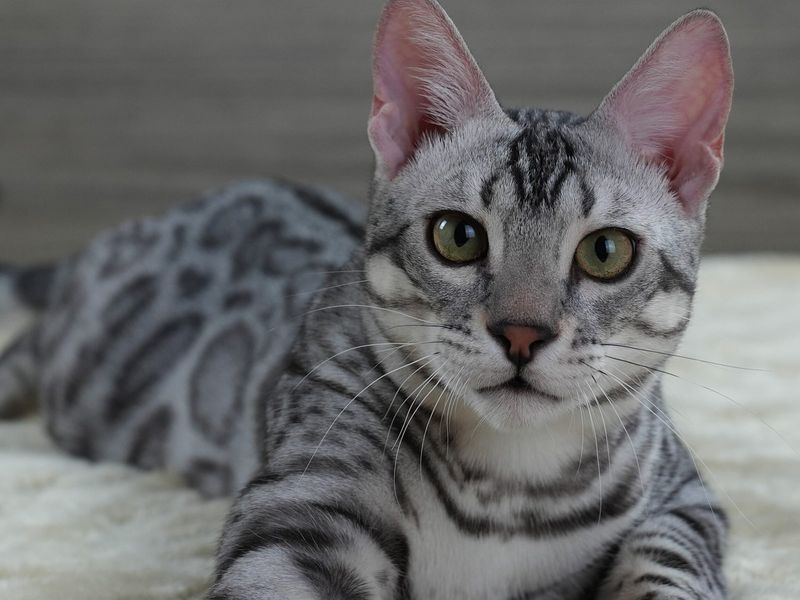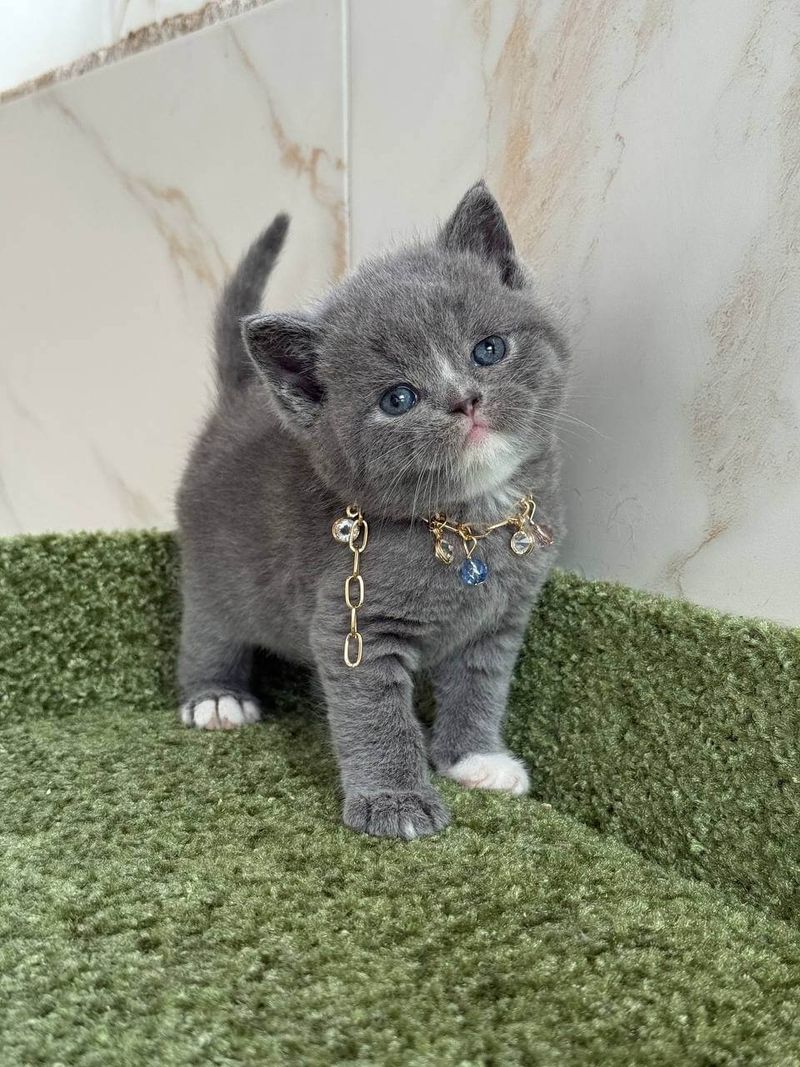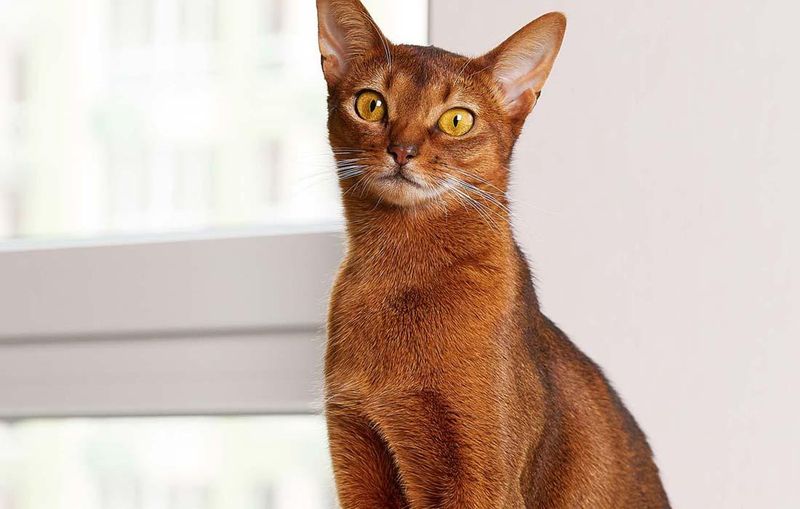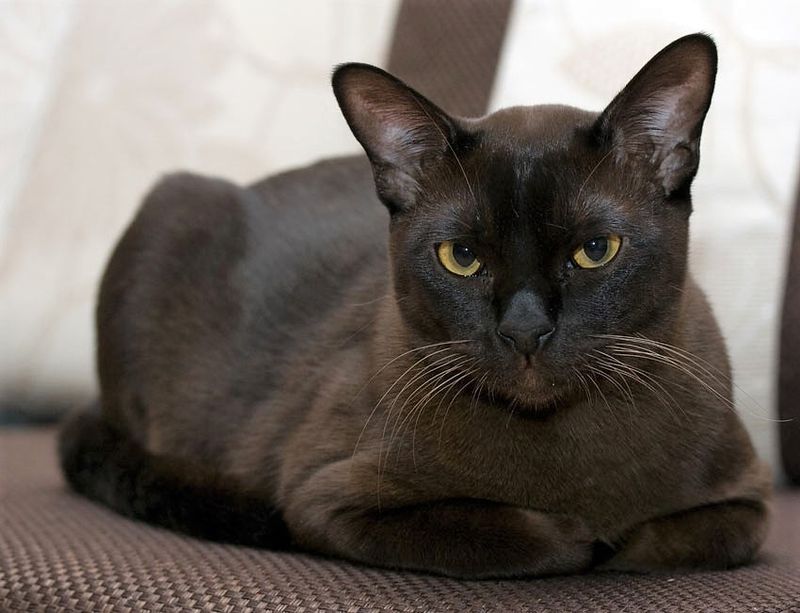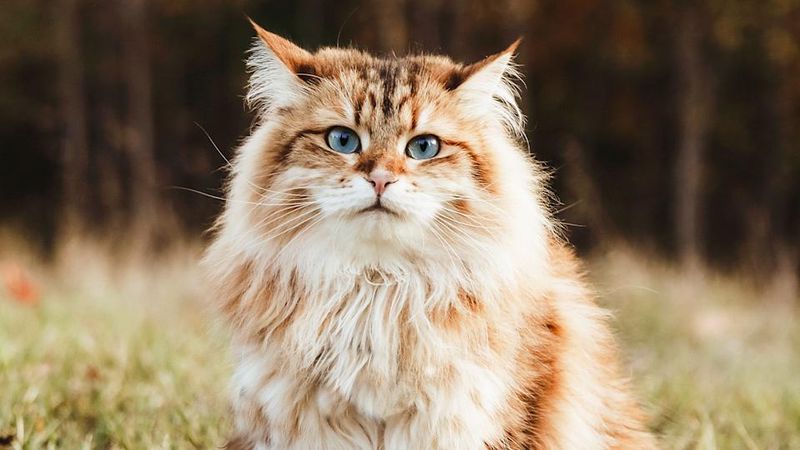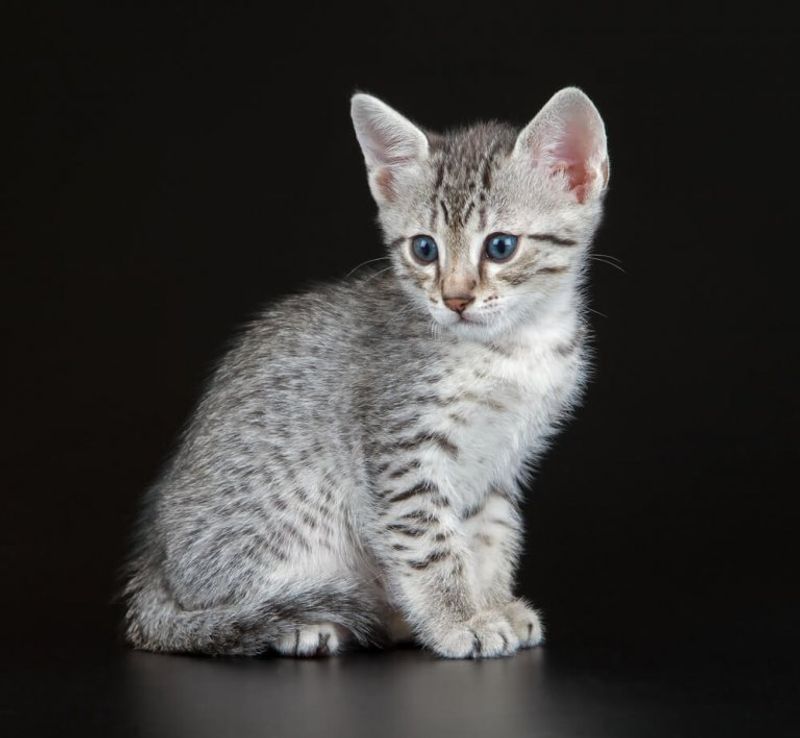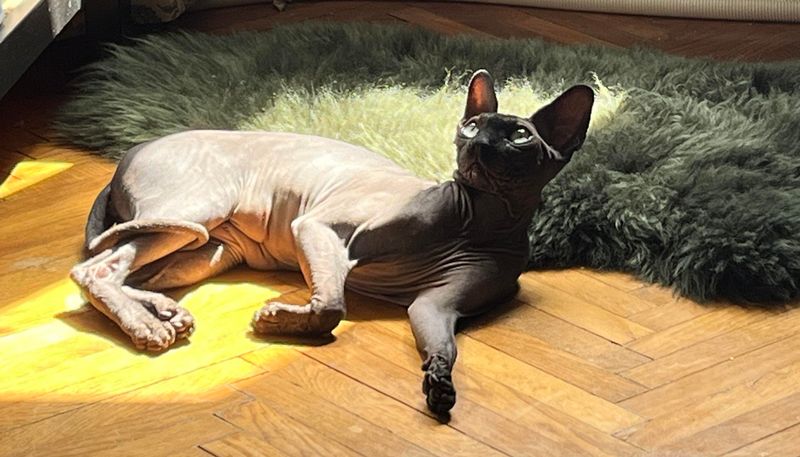📖 Table of Content:
Some cat breeds are known for their strong health and impressive longevity. With stable genetics and natural resilience, these cats are less prone to common illnesses. Their hardiness makes them a great choice for anyone seeking a low-maintenance feline companion.
Veterinarians often point to these breeds for their consistent health records. Many of them have fewer inherited conditions and show strong immune system function. Their overall vitality allows them to thrive well into their senior years.
While no cat is entirely free from health concerns, some breeds clearly stand out. Their combination of physical strength, genetic diversity, and balanced temperaments sets them apart. These traits contribute to fewer vet visits and a longer, healthier life.
1. American Shorthair
Known for their remarkable hardiness, American Shorthairs boast an impressive lifespan of 15-20 years. These cats developed naturally over hundreds of years, resulting in excellent genetic diversity and few hereditary health issues.
Their muscular build and balanced proportions contribute to their overall wellness. Veterinarians frequently praise their robust immune systems and natural resistance to respiratory conditions that plague many other breeds.
Originally brought to America as working cats to control rodent populations, these felines maintain their athletic physiques well into their senior years. Their moderate activity level and adaptable nature make them ideal for nearly any home environment.
2. Russian Blue
Russian Blues possess a dense, short double coat that produces fewer allergenic proteins than most cats. This makes them an excellent choice for allergy sufferers who still want feline companionship. Their genetic makeup includes remarkable resistance to many common feline diseases.
Veterinarians often highlight their consistent good health and predictable temperament. With proper care, these elegant cats regularly live 15-20 years without major health complications.
A naturally occurring breed, Russian Blues haven’t undergone extensive selective breeding that can introduce genetic weaknesses. Their moderate build, neither extreme in any physical characteristic, contributes to their balanced health profile and graceful aging process.
3. Siamese
Longevity is a hallmark of the Siamese cat, with many living into their 20s. Their slim, agile frames support healthy joints and graceful aging. Intelligent, spirited, and sturdy, they remain vibrant companions for decades.
Veterinary professionals note their lower incidence of heart problems compared to many other purebreds. Their naturally lean body type helps prevent obesity-related conditions that affect many domestic cats.
As one of the oldest recognized cat breeds, Siamese have developed strong genetic resilience. Regular checkups and dental care help maintain their exceptional health profile. Their vocal nature often alerts owners early when something isn’t quite right—an unexpected health benefit of their chatty personality.
4. Maine Coon
Known for their gentle growth pace, Maine Coons often don’t reach full size until age four. This gradual maturation promotes strong bone structure and long-term joint health. Shaped by rugged New England winters, they’ve evolved into one of the hardiest cat breeds.
Despite their impressive size, these gentle giants typically maintain excellent health throughout their 12-15 year lifespan. Their thick, water-resistant coats provide protection against environmental stressors.
Veterinarians particularly admire their sturdy hearts and lungs. While hip dysplasia can occasionally occur in the breed, responsible breeders screen for this condition. Their natural hunting abilities keep them physically and mentally active, contributing to their overall wellness and preventing obesity.
5. Ragdoll
Ragdolls defy their delicate appearance with surprisingly robust health. These blue-eyed beauties typically live 12-17 years with relatively few breed-specific health concerns. Their laid-back temperament reduces stress-related ailments that affect more high-strung breeds.
Created in the 1960s, Ragdolls benefit from careful breeding practices focused on health and temperament. Their moderate exercise needs and indoor lifestyle protect them from many environmental hazards that outdoor cats face.
Veterinarians appreciate their cooperative nature during examinations, making preventative care easier. While they can develop hypertrophic cardiomyopathy like many purebreds, genetic testing helps responsible breeders reduce this risk. Their large size develops without the extreme features that cause health problems in some breeds.
6. Bengal
With wild blood running through their veins, Bengals owe their vitality to the Asian leopard cat. This exotic lineage strengthens their immune system and keeps them resilient against disease. Their nonstop energy fuels lean bodies and well-toned muscles.
Unlike many domestic breeds, Bengals rarely develop obesity-related conditions. Their sleek, efficient body design promotes excellent circulation and respiratory health. Most Bengals remain playful and active well into their senior years.
Veterinarians note their lower incidence of dental disease compared to many other breeds. Their short, easy-care coat requires minimal grooming while still providing adequate protection. With proper care, these spotted athletes commonly live 12-16 healthy, active years with few genetic health concerns.
7. British Shorthair
British Shorthairs possess a genetic makeup that supports impressive longevity, with many reaching their late teens. Their naturally sturdy build develops without the extreme features that cause health problems in some breeds. These plush-coated cats maintain their health with minimal specialized care.
Selective breeding has focused on preserving their natural hardiness rather than creating exaggerated features. Their calm demeanor reduces stress-related illnesses that affect more high-strung breeds.
Veterinarians often comment on their solid bone structure and excellent muscle development. While they can develop hypertrophic cardiomyopathy, responsible breeders screen for this condition. Their moderate activity level and hearty appetite must be balanced with portion control to prevent obesity in their middle years.
8. Abyssinian
With roots tracing back thousands of years, Abyssinians carry a rich and varied genetic legacy. This diversity gives them an edge in both health and longevity, offering protection against many hereditary issues. Their sharp minds, athletic build, and natural resilience make them truly exceptional.
Constantly in motion, these ticked-coat cats naturally maintain healthy weight and muscle tone. Their medium-sized, well-proportioned bodies develop without the extreme features that cause problems in some breeds.
Veterinarians frequently comment on their excellent respiratory and cardiovascular health. Regular preventative care typically keeps these active felines thriving for 12-16 years. Their natural curiosity and playfulness continue well into their senior years, indicating their overall wellness and vitality.
9. Burmese
Burmese cats carry the nickname “brick wrapped in silk” for good reason—their surprisingly solid weight and muscular build support excellent health. These golden-eyed beauties typically maintain their playful personalities and physical condition well into their teens.
Their genetic makeup includes remarkable resistance to respiratory conditions that affect many short-nosed breeds. Unlike some purebreds, Burmese develop without extreme facial features that can cause breathing difficulties.
Veterinarians often praise their balanced temperament and adaptability. While they can develop diabetes in later years, proper diet and weight management significantly reduce this risk. Their social nature and moderate activity level contribute to both physical and psychological wellness throughout their 12-16 year average lifespan.
10. Siberian
Born in the unforgiving Russian wilderness, Siberians developed impressive strength and resistance to illness. Beneath their thick, elegant coat lies a hardy constitution. Despite their fluff, they’re known to produce fewer allergens than most other breeds.
Their natural development, free from extensive human-directed breeding, has preserved excellent genetic diversity. Veterinarians note their lower incidence of hereditary conditions compared to many other longhaired breeds.
Heart health stands out as a particular strength in Siberians. Their sturdy build and moderate size develop without the extreme features that cause problems in some breeds. With proper care, these powerful jumpers and climbers commonly enjoy 12-15 healthy, active years with remarkable resistance to environmental stressors.
11. Egyptian Mau
Known for their lightning-fast speed, Egyptian Maus can reach up to 30 mph, making them the quickest among domestic cats. Their athletic build supports a healthy heart and impressive muscle tone. Unlike many other breeds, their striking spotted coat developed without human interference.
Veterinarians frequently comment on their efficient metabolism and lean body composition. These medium-sized cats maintain healthy weight more easily than many breeds.
With one of the longest domesticated histories among cat breeds, Maus benefit from genetic stability and natural hardiness. Their slightly longer back legs provide exceptional jumping ability while supporting proper skeletal alignment. These spotted sprinters typically enjoy 12-15 active, healthy years with relatively few breed-specific medical concerns.
12. Sphynx
Sphynx cats defy expectations with their remarkable health despite their hairless appearance. Their lack of fur actually eliminates many common skin conditions associated with coat maintenance in other breeds. These warm-bodied felines typically develop robust immune systems.
Contrary to popular belief, Sphynx cats aren’t particularly delicate. Their muscular build and moderate size support excellent overall health. Veterinarians note their lower incidence of respiratory issues compared to many short-nosed breeds.
Careful breeding practices have produced a genetically diverse foundation for the breed. While they require protection from sunburn and temperature extremes, Sphynx cats generally enjoy 12-14 healthy years. Their high metabolism and active nature help maintain proper weight and muscle tone throughout their lives.
